As of early 2023, THCA flower is legal in North Carolina if derived from hemp that contains no more than 0.3% THC, aligning with both federal and state regulations. North Carolina's law allows for the sale and use of hemp-derived THCA flower under these conditions, provided consumers procure it from legitimate sources offering certificates of analysis (COAs) to confirm legal THC content. The North Carolina Department of Agriculture and Consumer Services oversees hemp cultivation and sales, ensuring product integrity through strict standards. For those considering THCA flower use in North Carolina, staying informed about the legal landscape is crucial, as laws can change. It's also essential to purchase from licensed sources and properly store THCA flowers to maintain their legal compliance and efficacy. In North Carolina, THCA is available for medical use with a valid patient card, and proper storage is necessary to preserve its potency and health benefits. As the legal status of THCA continues to evolve, it's being explored in various forms such as edibles and topicals, offering therapeutic alternatives beyond traditional smoking methods. The state's regulatory framework ensures that consumers have access to safe, regulated products while exploring the potential health benefits of THCA.
Navigating the nuanced landscape of cannabinoids, this article delves into the medicinal and practical uses of THCA flowers, a topic gaining traction among wellness enthusiasts. As we explore the legality of THCA flower possession and use in North Carolina, we’ll provide clarity on where you stand according to state laws. We’ll also guide you through sourcing high-quality THCA flowers that adhere to legal standards within the state. With a focus on the therapeutic properties of THCA and its potential benefits, readers will gain insights into preserving their flowers for optimal effect. Additionally, we’ll uncover innovative ways to incorporate THCA flowers into your wellness routine beyond traditional smoking, including edibles, topicals, and more, ensuring you have a comprehensive understanding of this cannabinoid’s versatility and value.
- Understanding THCA Flower Legality in North Carolina
- Sourcing Quality THCA Flowers within Legal Boundaries in NC
- The Medicinal Properties of THCA and Its Potential Benefits
- Storing and Preserving the Integrity of Your THCA Flowers
- Innovative Uses of THCA Flowers Beyond Smoking: Edibles, Topicals, and More
Understanding THCA Flower Legality in North Carolina
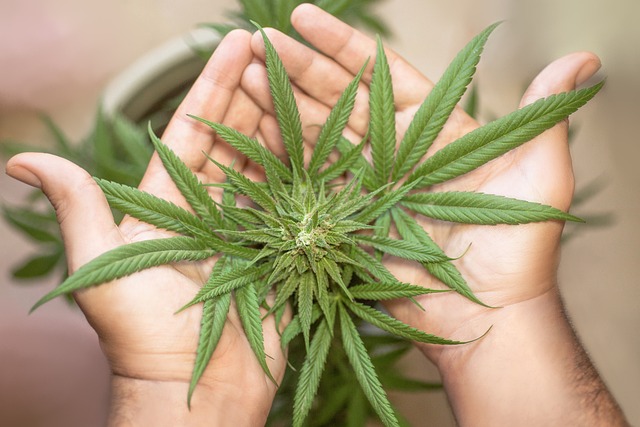
In the context of cannabis-related compounds, THCA, or tetrahydrocannabinolic acid, has garnered attention for its potential therapeutic benefits. As of my knowledge cutoff in early 2023, the legality of THCA flower in North Carolina is a nuanced topic that hinges on distinctions between hemp-derived and cannabis-derived products. According to the North Carolina General Statutes, all forms of marijuana remain illegal under state law except for certain CBD oils with less than 0.3% THC. However, hemp-derived products, including THCA flower that contains no more than 0.3% THC and is legally compliant with federal and state regulations, are legal within the state. It’s crucial to source such products from reputable vendors who provide certificates of analysis (COAs) to confirm their legal status. North Carolina’s Department of Agriculture and Consumer Services oversees hemp production within the state, ensuring that these products meet strict guidelines for cultivation and distribution. Thus, individuals interested in THCA flower must navigate this regulatory landscape carefully to ensure compliance with both federal and state laws. Staying informed about the evolving legal framework is key for anyone seeking to legally enjoy THCA flower in North Carolina.
Sourcing Quality THCA Flowers within Legal Boundaries in NC
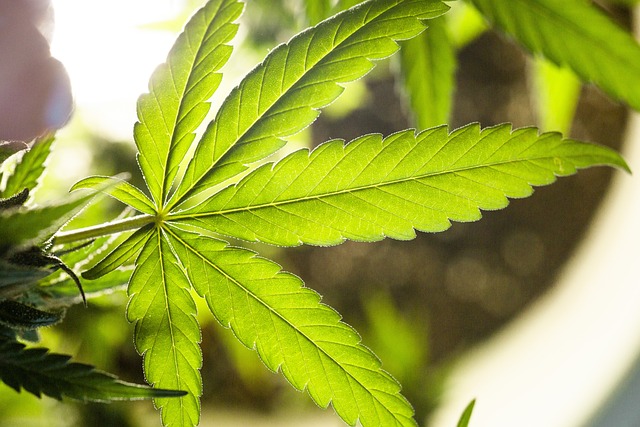
In the pursuit of high-quality THCA flowers, discerning consumers in North Carolina have a variety of options to source these products legally. As of the latest updates, the use and sale of THCA flowers are permitted under the state’s hemp program, provided they contain less than 0.3% THC on a dry weight basis, aligning with federal guidelines set forth by the 2018 Farm Bill. To ensure compliance with local laws, it is advisable to purchase from reputable sources that provide third-party lab test results verifying the legal THC content and cannabinoid profile of their products. These tests are crucial for confirming that the flowers are within the legal boundaries and safe for consumption. North Carolina’s hemp market has grown significantly, offering a range of vendors both online and in physical storefronts. Consumers interested in sourcing THCA flowers should look for establishments with a strong track record and transparent practices. Local farmers’ markets, specialized hemp dispensaries, and online retailers can be viable options, but due diligence is key to navigating the market and finding the best quality products that meet legal standards.
Navigating the legal landscape for THCA flowers in North Carolina requires a clear understanding of the state’s laws and regulations. While hemp-derived THCA flowers are legal, it is essential to stay informed about any legislative changes that may affect their availability or legality. Consumers should also be aware of the different strains and their potential effects, as well as how to properly store and handle these products to preserve their potency and efficacy. Engaging with knowledgeable local vendors or attending educational events can provide valuable insights into selecting the right THCA flowers for personal use within the legal framework established by North Carolina’s hemp program. Always prioritize licensed and regulated sources to ensure a safe and legal experience when purchasing THCA flowers.
The Medicinal Properties of THCA and Its Potential Benefits
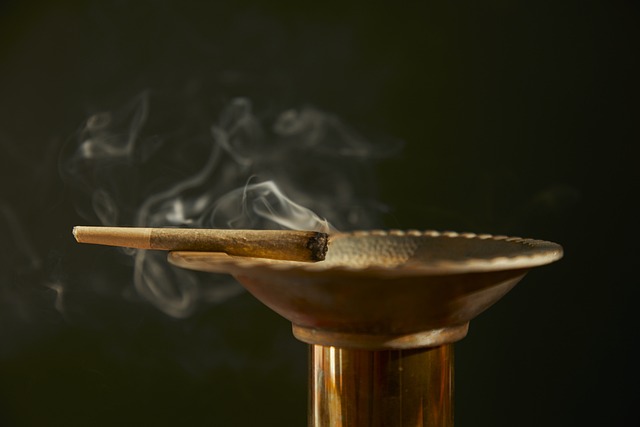
Delta-9 tetrahydrocannabinolic acid (THCA) is a non-psychoactive cannabinoid found in the Cannabis sativa plant, which is legal in various forms in North Carolina. THCA is the raw form of THC and has garnered attention for its potential therapeutic properties. Preliminary research suggests that THCA may offer a range of medicinal benefits without the psychoactive effects typically associated with its decarboxylated counterpart, THC. Proponents claim that THCA could be beneficial in managing pain, reducing inflammation, and providing neuroprotective effects. Its anti-nausea and appetite-stimulating properties are also of significant interest to those exploring cannabinoids for health purposes. Additionally, studies indicate that THCA may have antiemetic qualities, which could make it a valuable treatment option for individuals undergoing chemotherapy or suffering from wasting syndromes associated with HIV/AIDS. As research continues, the potential applications and benefits of THCA, particularly in legal contexts like North Carolina, are becoming more evident, offering hope for alternative and natural approaches to health and wellness.
Storing and Preserving the Integrity of Your THCA Flowers
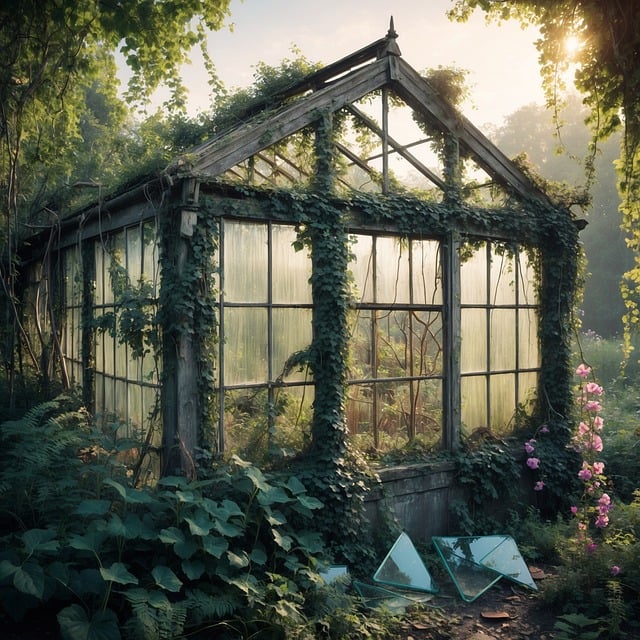
When it comes to storing and preserving the integrity of your THCA flowers, understanding the legal landscape is as important as the proper care techniques. As of my knowledge cutoff in 2023, THCA flower possession and use are legal in North Carolina under state law for medical purposes with a registered cannabis patient card. Patients must adhere to the specific regulations set forth by the state, which include secure storage away from children and pets. Proper storage is critical for preserving the potency and efficacy of THCA flowers. To maintain their quality, store your THCA flowers in a cool, dark, and dry place, preferably in an airtight container to protect against moisture and oxygen, which can degrade the cannabinoids over time. A humidity-controlled environment with a consistent temperature is ideal. Avoid exposing your THCA flowers to extreme temperatures or direct sunlight, as this can compromise their chemical composition. By following these storage guidelines, you ensure that your THCA flowers remain fresh and retain their beneficial compounds for as long as possible. Additionally, keep your THCA flowers away from other strong-smelling items to prevent cross-contamination of odors, which could attract unwanted attention or lead to accidental misuse or overconsumption. Always verify the latest state regulations to stay compliant with North Carolina’s laws regarding THCA flowers, as legal status can change and may vary from federal to state jurisdictions.
Innovative Uses of THCA Flowers Beyond Smoking: Edibles, Topicals, and More
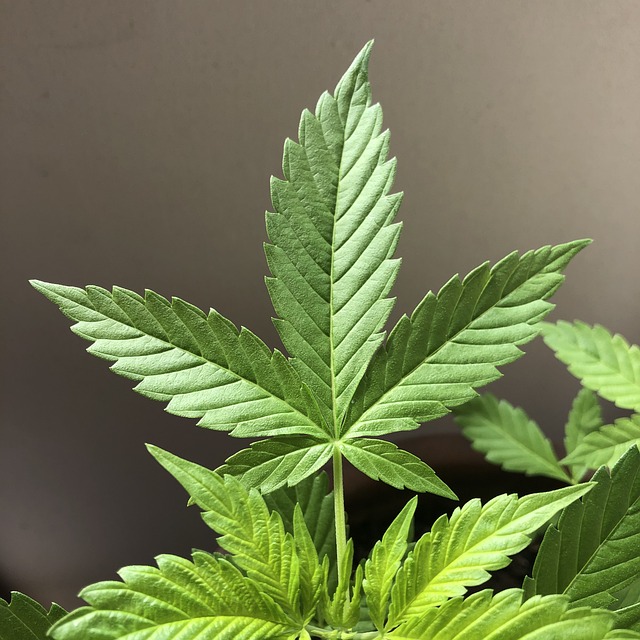
In recent years, THCA flowers have garnered attention for their potential beyond traditional smoking methods. THCA, or Tetrahydrocannabinolic Acid, is the raw form of THC found in the cannabis plant and is known for its therapeutic properties. As regulations evolve, such as those in North Carolina where THCA products are becoming legal under certain conditions, consumers and manufacturers are exploring innovative ways to utilize these flowers. One of the most notable alternatives to smoking is the creation of edibles. Edibles offer a discrete and often longer-lasting effect, appealing to those seeking relief or recreational use without the respiratory implications of combustion. The culinary applications for THCA are vast; from infused baked goods and chocolates to savory snacks and beverages, the possibilities are limited only by one’s creativity in the kitchen.
Another significant area where THCA flowers can be used is in the production of topicals. Topical applications allow users to experience the beneficial effects of cannabinoids directly on the skin for localized relief. Unlike ingestible products, topicals do not enter the bloodstream, making them a safe option for those sensitive to THC’s psychoactive effects or for areas where internal consumption might be less desirable. The anti-inflammatory and pain-relieving properties of THCA make it an excellent candidate for creams, balms, and salves that can provide targeted relief for conditions like arthritis or skin irritations. As the legal landscape continues to shift, particularly in states like North Carolina, the potential for THCA flowers to transform various industries is becoming increasingly clear, offering a broad spectrum of benefits beyond traditional smoking methods.
navitating the legality surrounding THCA flowers can be a complex task, especially for residents of North Carolina. This article has delved into the specifics of THCA’s legal status within the state, providing clarity and guidance for those interested in exploring its potential benefits. We’ve explored how to source high-quality THCA flowers within these legal parameters, ensuring readers have access to safe and compliant products. Additionally, we’ve highlighted the medicinal properties of THCA and its promising therapeutic effects, which continue to be a subject of growing scientific interest. It’s crucial for users to understand proper storage methods to maintain THCA flower integrity and maximize their cannabinoid experience. Furthermore, this article has expanded on the innovative applications of THCA beyond traditional smoking, opening up avenues for its use in edibles, topicals, and other wellness products. In conclusion, THCA’s legal standing in North Carolina is a testament to the evolving landscape of cannabinoid legislation and the potential of these compounds for health and well-being. As laws adapt and research progresses, the role of THCA in our lives may expand significantly, offering new possibilities for holistic health support.
